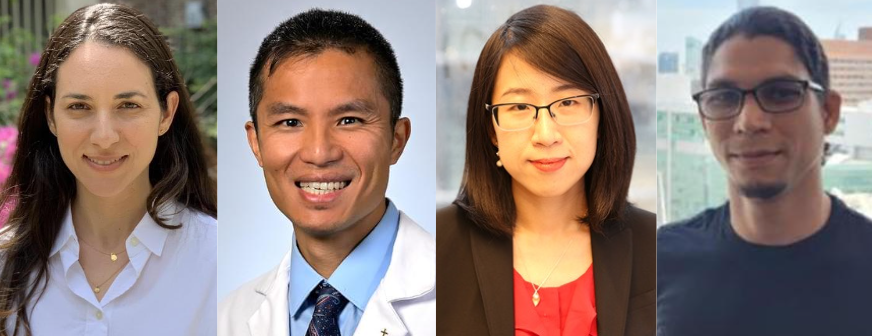
PHILADELPHIA-The Pew Charitable Trusts has named Maayan Levy, PhD, an assistant professor of Microbiology at the Perelman School of Medicine at University of Pennsylvania, a 2022 Pew Scholar in the Biomedical Sciences. The Pew Charitable Trusts and the Alexander and Margaret Stewart Trust have also selected Alexander Huang, MD, an assistant professor of Hematology-Oncology, and Chengcheng Jin, PhD, an assistant professor of Cancer Biology, as 2022 Pew-Stewart Scholars for Cancer Research. John James Tello Cajiao, PhD, a postdoctoral fellow in Pathology & Laboratory Medicine, has been named a 2022 Pew Latin American Fellow in the Biomedical Sciences.
For 37 years, The Pew Charitable Trusts has encouraged scientific innovation by supporting promising, early-career biomedical scientists driving medical breakthroughs. The 2022 Pew Scholars in the Biomedical Sciences were chosen from 197 nominees by leading academic institutions and researchers across the United States. Levy will receive funding over the next four years to explore how internal factors influence the biology of intestinal epithelial cells.
The Pew-Stewart Scholars Program for Cancer Research scholars in the 2022 class will each receive a four-year grant to advance their initiatives. Jin will investigate how the nervous system regulates immune responses to lung cancer. Huang will investigate the underlying T cell responses from a new immunotherapy to develop safer and more effective treatments for melanoma.
The Pew Latin American Fellows Program in the Biomedical Sciences provides support for young scientists from Latin America to receive postdoctoral training in the United States, giving them an opportunity to further their scientific knowledge by promoting exchange and collaboration between investigators in the United States and Latin America-ultimately resulting in advances in research in Latin America. Cajiao will receive two years of funding to develop analytical tools for dissecting how the spatial organization of DNA regulates the activity of genes.






